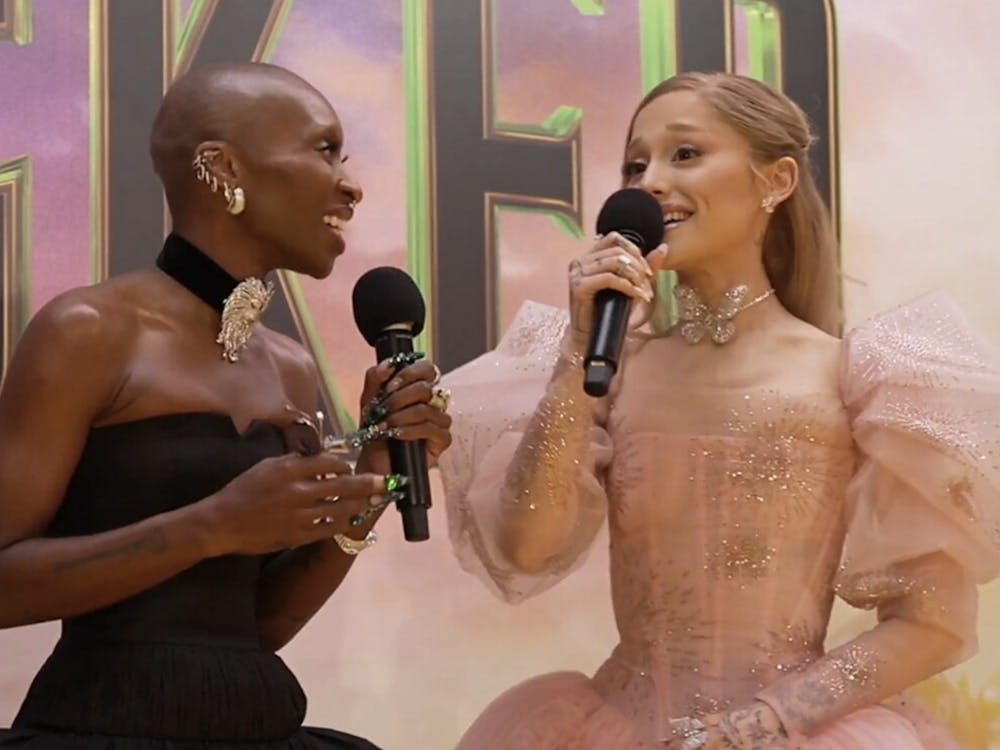La Flare, Big Guwop, Mr. Zone 6, Trap God — no matter the moniker, it's difficult to find anyone in the hip-hop scene who doesn’t recognize industry giant Gucci Mane. Since the release of his debut studio album “Trap House” in 2005, Gucci has released three EPs, eight more studio albums and over 40 mixtapes. More than 10 of these projects were made and released while Gucci was incarcerated on weapons charges from 2014 to 2016. With the release of “Woptober,” Gucci returns to the rap grind without pause and continues his consistent output of high quality trap music.
Gucci is undoubtedly one of the biggest artists in the trap rap scene, and his trademark trap sound of bass-heavy club bangers continues on “Woptober.” The album features an impressive list of production credits from a number of major producers including London on da Track, Zaytoven and Metro Boomin. Every instrumental on “Woptober” is full of energy, crisp clear hi-hat percussion and thumping bass lines, giving them the perfect sound for Gucci’s listener base of club-goers and partiers.
The album’s more club-friendly sound is no criticism, however, as “Woptober” maintains Gucci’s signature sound but also features a slew of interesting production choices within the trap style. Tracks like “F— 12,” “Aggressive” and “Right On Time” feature a washed organ sample which pulses menacingly in the background and couples well with the aggression and energy of Gucci’s delivery.
“The Left” employs an array of wavy and twinkling synths to create a strange, spacey, yet still danceable banger. Metro Boomin pairs a subdued and echoey guitar loop with a crisp yet bare-bones drum kit to create a very sober and dark atmosphere on “Hi-Five.” There isn’t a single track on “Woptober” which doesn’t feature an incredibly high level of polish in its production, free of muddy bass or overwhelmed vocals.
The production on “Woptober” certainly isn’t its only point of merit, as Gucci delivers incredible flows, complex rhyme schemes and hints of deeper lyricism throughout the album. Gucci continues to use his trademark unwavering flow, with a subtly aggressive delivery and a low tone of voice, for the majority of the album.
That being said, he does experiment at times, like on the track “Love Her Body” where he transitions into drawn-back auto-tuned singing close to neo-soul. It blends nicely with the track’s chunky trap beat. Gucci also experiments with a drawn-back and more personal flow on the track “Dirty Lil N—,” a choice which couples well with the track’s more somber subject matter and tense string instrumentation.
To go along with this expansion of his flow style, Gucci also delves into subject matter outside of the glossy party lights of his high-rolling club lifestyle. These more somber moments showcase some of Gucci’s best lyricism on “Woptober,” like on “Dirty Lil N—,” in which Gucci tells the story of a young teen in the projects turned to gang life and eventually jail. Remarks like “Project baby, no father figure / only 15 and he a father n—” depict the generational problems project families face. Lyrics like “Mama can’t do nothing with him / but get on her knees and pray the streets don’t kill him” garner sympathy for the strain gang life puts on the families of the projects.
Gucci ends his verse with “Y'all might don't feel him, but I damn sure feel him / ‘Cause I was just in a jail cell f---ed up with him,” revealing that the subject matter of the track is something Gucci has seen firsthand and personally sympathized with. This leaves the listener to resonate on the song’s content as being the reality of project life for young teens.
There is very little about “Woptober” to be seen in a negative light. Gucci provides an album full of quality bars delivered in both his signature and more experimental flows. The polished-to-a-sheen production and absolutely killer guest verses from Rick Ross and Young Dolph showcase that Gucci has not only delivered himself but brought in a slew of collaborators who can match his output. “Woptober” is a resounding success for any fan of Gucci or trap music as a whole.




